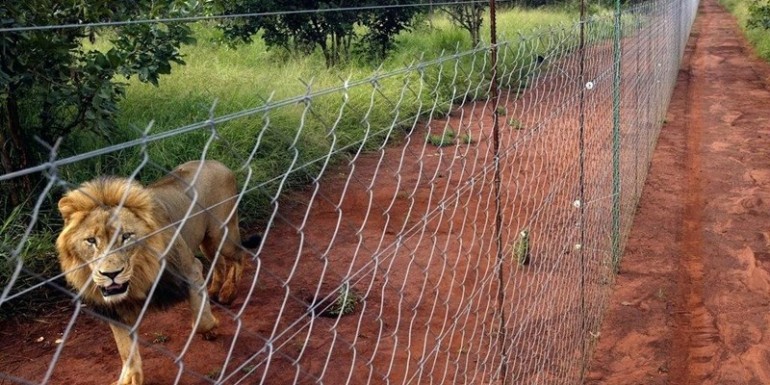Sponsored Listings:
A number of the private reserves in the Greater Kruger National Park appear to be violating the protocols and regulations that permitted them to drop fences with Kruger and hunt animals that cross over from the national park. As a result, Kruger is threatening to re-erect the fence.
One of the reserves, Umbabat, has been flagged by Kruger officials for its questionable commitment to local community involvement and empowerment and its contribution to community development programmes, as required by the 2018 Greater KNP Hunting Protocol.
It states: “Professional (commercial) hunting is conducted in these areas [the APNR] with the goals of providing the income to contribute to the management of the environment […] and to support social initiatives of community development as per Reserve specific programmes.”
At Umbabat Private Nature Reserve, however, hunting continues, undeterred by allegations of illegal hunting practices, poor governance and no trace of conservation or community involvement.
Support for local communities as central to trophy hunting is a stated requirement of the large US Safari Club International. It requires that hunting should “generate necessary revenue for conservation, contribute to national economies and local communities, and create employment opportunities in rural areas”.
SANParks notes on the Umbabat 2018 take-off requirement that it’s unclear how the income generated by commercial hunting in the reserve is managed and that it’s “also not clear towards which conservation, management and socio-economic activities the revenue generated is being directed”.
In Timbavati, hunting continues despite “non-compliance with regards to certain trophy hunting classes and reporting, as per Protocol requirements”.
In recent hunts, two elephants shot on Timbavati exceeded the maximum tusk weight allowed. The reserve also failed to submit the ages of 11 previously hunted elephants, as required by the Hunting Protocol, apparently, it said, due to rodents eating the tags attached to the jaw bones.
Two lions were also hunted on the reserve without notifying Kruger rangers, as required.
At the recent 2018 African Ranger Awards, Minister of Environmental Affairs, Edna Molewa, reiterated SANParks’ mission of ‘A sustainable National Parks System, Connecting Society’, stating that South Africa’s “natural capital is not just a thing of beauty, but a driver of socio-economic development [with the] objective to give communities across the continent a real, tangible stake in wildlife management”.
This sentiment is clearly not happening as required by some of Kruger’s neighbours.
Zero governance, zero consequence
SANParks requires that it is the responsibility of the issuing authority to monitor compliance with all regulations and legislative requirements.
According to Mpumalanga Tourism and Park Agency (MTPA) Senior Communications Manager, Kholofelo Nkambule, the APNR’s commitment to conservation and community development doesn’t affect how and if hunting permits are issued. He insists it is not a specific requirement in terms of the relevant legislation.
Nkambule says the Hunting Protocols are from SANParks, not the MTPA, and therefore not binding on how hunting is conducted under their jurisdiction.
Despite a clear mandate to oversee APNR compliance with the protocols, SANParks seems unwilling to police transgressions, citing the permit-issuing authorities LEDET (Department of Economic Development, Environment and Tourism Limpopo) and MTPA as the regulators of APNR’s hunting practices.
SANParks insist that its only power is to ‘recommend’ best practice. “We have no authority, but there are protocols and guiding principles in place with the APNR since the dropping of the fence,” says SANParks’ Ike Phaahla.
The APNR organisation also apparently avoids enforcing the Hunting Protocol. According to outgoing Chair, Rob Garmany: “APNR is not an authority and cannot comment, act or purport to represent any of its members.” He says the APNR committee is a merely a voluntary association.
According to Phaahla: “If any protocols have been broken and there is evidential proof, MTPA and LEDET are obligated to investigate and make their findings public.”
MTPA, however, has not been very forthcoming with information on their hunting regulations, as seen with the probable killing of Skye, a dominant male lion in Umbabat Reserve. It took an investigative journalist Don Pinnock, via a secret source, to reveal Graham Sales as the outfitter accompanying American hunter, Jared Whitworth, on the hunt, with permission from the MTPA’s head of professional hunting, Riaan de Lange. Permission to view the skin to see if they had shot the ‘wrong’ lion has been consistently denied by De Lange.
It’s clear that Sales and the MTPA have a close relationship. Sales’ most recent hunting brochure boasts; “Graham Sales Safaris is proud to announce that we have been awarded the exclusive hunting rights by MTPA for 2018, 2019 and 2020 on South Africa’s largest Provincial Nature Reserves. No hunting occurred on both Reserves for a period of six years – 2011 till 2016.”
Notable on this hunting brochure is the advertisement for a male leopard hunt, despite the ongoing national moratorium on leopard hunting in SA.
The continual permitting offences are clearly putting pressure on SANParks. When probed on the recent Kruger lion hunt, KNP Managing Executive, Glenn Phillips said that “If Umbabat doesn’t sort out their governance issues, KNP will re-erect the fence”.
Source: tourismupdate.co.za










